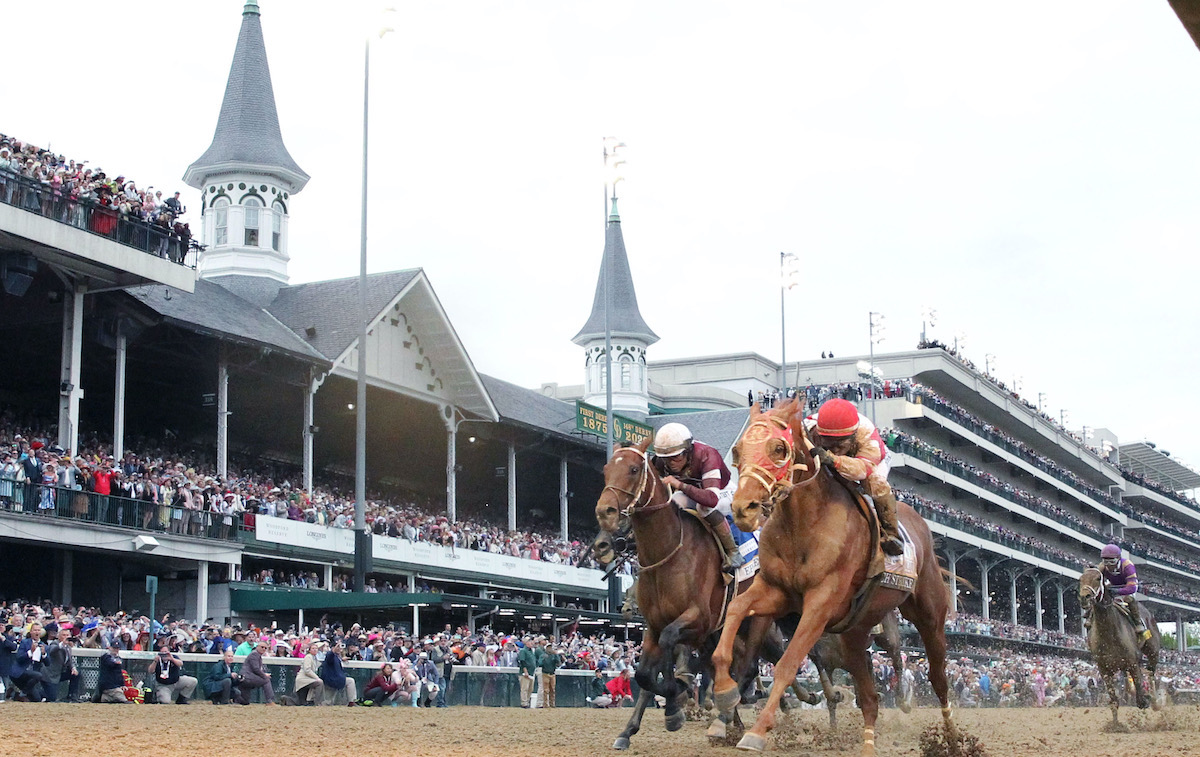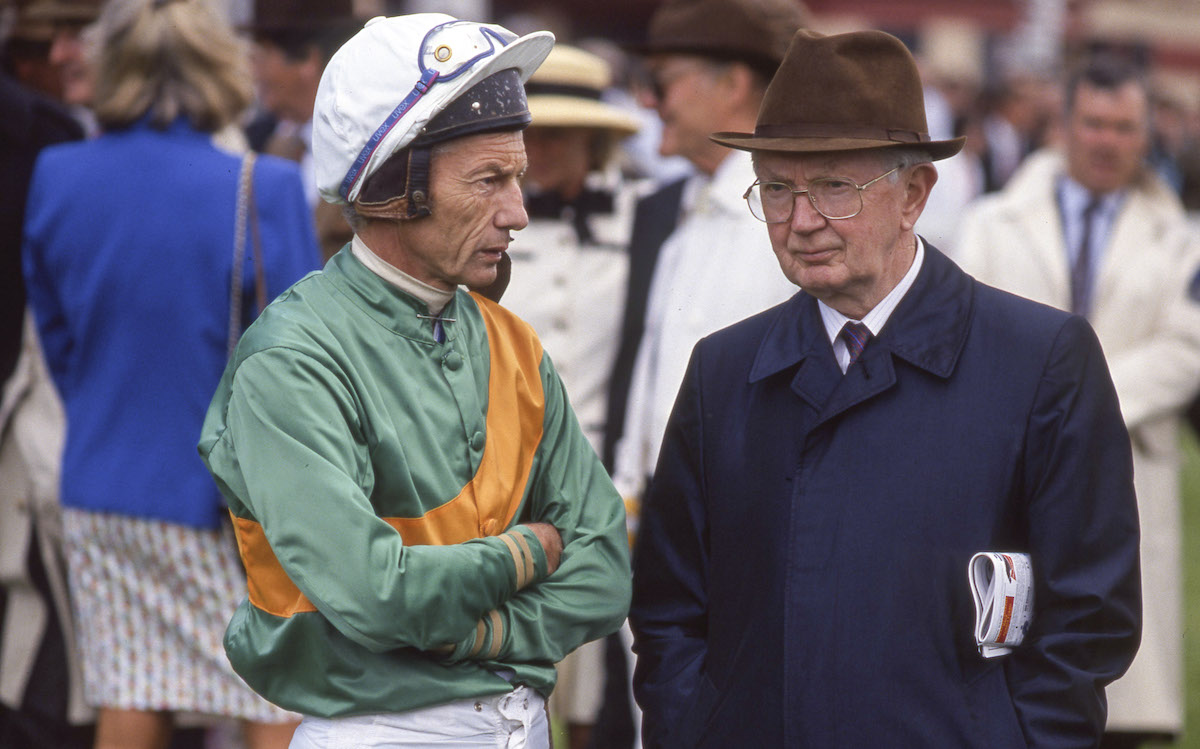
Leading TV broadcaster on both sides of the Atlantic completes our regular questionnaire
 Nick Luck, 45, is one of the most recognisable broadcasters in racing – on both sides of the Atlantic.
Nick Luck, 45, is one of the most recognisable broadcasters in racing – on both sides of the Atlantic.
In the US, Luck has become a key figure in the sport’s coverage by NBC (and before that ESPN), having appeared in the last 18 of the network’s broadcasts. He most recently co-hosted the Eclipse Awards at Gulfstream Park ahead of the Pegasus World Cup meeting.
In Britain he anchored the terrestrial coverage of racing on Channel 4, with whom he worked for 12 years. He is now a regular fixture at the major meetings for RacingTV as well as presenter of the weekly magazine show Luck On Sunday.
His award-winning Nick Luck Daily podcast regularly has become a trove of breaking news while his international portfolio incorporates the Melbourne Cup, Saudi Cup, Bahrain International and Dubai World Cup. He is a trustee of the National Horse Racing Museum and chair of the Godolphin Thoroughbred Industry Awards.
Luck has been named Racing Broadcaster of the Year nine times by the Horserace Writers’ Association in Britain, including last year, when he was also Reporter of the Year.
Which racing figure past or present do you most admire?
For the sheer scale of his achievements, Vincent O’Brien has to be top of the list. He did more to revolutionise the racing and bloodstock industry globally than just about anybody else.
He founded the most successful Thoroughbred enterprise of all time and managed to combine extraordinary horsemanship with enormous technological advancement. He was a pioneer of travelling horses and one of the first to properly understand the importance of global horse racing.
I would add Josh Gifford, who was my godfather. Without him I wouldn't have the interest in the sport that I have. He was very humble about his own achievements as a four-time champion jockey and trainer of more than 1,500 winners. From a child’s perspective he always made the sport great fun.
From present day I have huge admiration for Graham Motion, who has spoken his mind and stood up for what he believes in against a tide of reactionaries and plays the game the right way.
Which is your favourite venue, and race, anywhere in the world?
 These change fairly regularly but at the moment I would say it would be a three-way tie for venue between York, which sets the standard for experience and quality of racing in the UK, Santa Anita, for the beauty of its location, and if you tried to score every track on 30 different criteria, I am fairly sure Flemington would come out on top.
These change fairly regularly but at the moment I would say it would be a three-way tie for venue between York, which sets the standard for experience and quality of racing in the UK, Santa Anita, for the beauty of its location, and if you tried to score every track on 30 different criteria, I am fairly sure Flemington would come out on top.
In terms of favourite race, there is still nothing like the Kentucky Derby. It’s the one race I always wanted to cover. The sheer theatre of it is unsurpassed. The energy in those few minutes before and after the race is like nothing else.
Who is your favourite racehorse and why?
There have been so many. I will always have a soft spot for Desert Orchid because he informed so much of my racing upbringing. Nashwan was probably the first really good Flat horse that made a big impression on me.
Denman, the chaser, was another favourite and, during a time when I was covering a lot of US racing at the beginning of my career, I developed a soft spot for Perfect Drift, who ran a lot and was very unconventionally campaigned.
What is your fondest memory in racing?
I have had so many great experiences. Watching my brother James win a point-to-point at Hackwood Park in 1998 rates pretty highly. Seeing my horse Hawk Mountain win at the Ebor Festival was memorable. For financial reasons Ventura’s victory in the Breeders’ Cup Filly & Mare Sprint at Santa Anita in 2008 was a very sweet moment.
If you could change one thing in racing, what would it be?
The obvious answer is to restore a degree of centralised control to the fixture list in the UK, but evidently it is going to be extremely difficult to push that any further than it’s already gone. Taking some control away from racecourses’ self interest would make the biggest difference.
I’d like to see Britain follow the Australian model of allowing more owners to be officially recognised, It may sound like a small thing but if there are 20 people involved in a horse down under, each and everyone of them feel like they own that horse and are made to feel like that by the racecourse.
I’d like to envisage a scenario where pool betting could be more culturally important in Britain, but has the bird already flown?
When these committees talk about the future of the sport, why is it never seen through the lens of someone who might want to go racing, the fan? The answer is because they have become the least important part of the puzzle – which is a crying shame.
Nick Luck was speaking to Jon Lees
• View the entire What They're Thinking series
Steve Asmussen: Curlin brought us to a completely different level
Eoin Harty: I would put down synthetic tracks instead of dirt
View the latest TRC Global Rankings for horses / jockeys / trainers / sires



